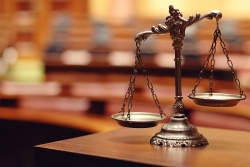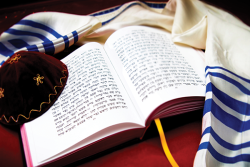Wholly Jewish: Noa: The Beauty of Taking Up Space
The Power of Our Dreams, Both Asleep and Awake
When Do We Know We’ve Completed the Struggle?
In Parashat Vayishlach, Jacob receives a new name that becomes the name of the Jewish people: Israel.
The Most Painful Parts of Joseph’s Story Can Teach Us about Ourselves
Soul-Making: Living in the Peaks, the Valleys, and Everything in Between
What Torah Can Teach Us about Overcoming Loneliness
The Greatest Threat to Civilization, as Taught by Torah
When reading Parashat Tol’dot each year, I am amazed how relevant these ancient stories remain today, including the last significant moment in Isaac’s life.
Letting Abraham's Example Guide Us, During Election Season and Beyond
Wholeness Is Found in the Little Details
This week's Torah portion, Parashat P'kudei, brings the Book of Exodus to a close. The Israelites — who by this point in our story have been freed from Egyptian slavery, stood at Mt. Sinai to receive the Ten Commandments and the Torah, and in this week's parashah, completed the construction of the Tabernacle — are finally ready for their long years of wandering that will take up the rest of the Torah's narrative.
If your only exposure to the Book of Exodus was through children's Bible stories, Hollywood, or even the Jewish calendar, you might easily overlook the part of the story about the Tabernacle. Big stories like the liberation from Egypt, the giving of the Ten Commandments, the building of the Golden Calf, and God's appearance at the Burning Bush are almost always portrayed as the major events of the Book of Exodus. The building of the Tabernacle — the portable sanctuary that will serve as God's dwelling-place among the Israelite camp during their wanderings — barely even registers. But when Moses finally completes the Tabernacle in this week's Torah portion, it is after five weekly Torah portions, fifteen chapters, and almost half the Book of Exodus that are mostly devoted to the detailed and often repetitive description of the Tabernacle.
Why I Love Leviticus
Vayikra, Leviticus, is my favorite book in the Torah. Its first portion, also called Vayikra, appears to deal mainly with the priestly cult and laws of sacrifice. But our discussion will show, this describes the portion and successive ones only at the most basic, p'shat, or "simple" level. As an introduction to all the upcoming portions of Leviticus, let's look at six crucial lessons I believe are in the third book of our Torah.








